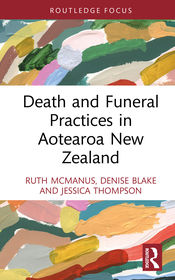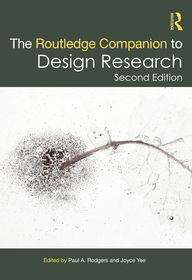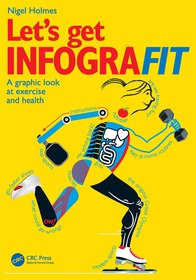
Teaching Death, Grief and Bereavement
Series: Elgar Guides to Teaching;
- Publisher's listprice GBP 105.00
-
50 163 Ft (47 775 Ft + 5% VAT)
The price is estimated because at the time of ordering we do not know what conversion rates will apply to HUF / product currency when the book arrives. In case HUF is weaker, the price increases slightly, in case HUF is stronger, the price goes lower slightly.
- Discount 10% (cc. 5 016 Ft off)
- Discounted price 45 147 Ft (42 998 Ft + 5% VAT)
Subcribe now and take benefit of a favourable price.
Subscribe
50 163 Ft

Availability
Estimated delivery time: In stock at the publisher, but not at Prospero's office. Delivery time approx. 3-5 weeks.
Not in stock at Prospero.
Why don't you give exact delivery time?
Delivery time is estimated on our previous experiences. We give estimations only, because we order from outside Hungary, and the delivery time mainly depends on how quickly the publisher supplies the book. Faster or slower deliveries both happen, but we do our best to supply as quickly as possible.
Product details:
- Publisher Edward Elgar Publishing
- Date of Publication 25 April 2025
- ISBN 9781035343850
- Binding Hardback
- No. of pages298 pages
- Size 234x156 mm
- Weight 542 g
- Language English 656
Categories
Long description:
Taking a holistic approach, Neil Thompson and Gerry R. Cox propose a rich variety of methods for teaching death, grief and bereavement. Recognising the sensitivity and complexity of these issues, the authors have developed this guide to help teachers in higher and further education provide high-quality teaching and training around death and mortality, dying and end-of-life care and grief and bereavement.
Thompson and Cox address the key challenges of teaching in these areas as well as the complex relationship between theory and practice, putting forward a ‘theorizing practice’ approach. Analysing the role of sociopolitical factors, such as gender and culture, the authors explore the differences between personal and collective responses to death and loss. The book also provides extensive practical guidance in the form of over 80 exercises, tips, advice on pitfalls to avoid, and handouts to be used in class.
Teaching Death, Grief and Bereavement is a valuable resource for teachers and lecturers specialising in death, grief and bereavement, as well as educators in social work, social care, healthcare, nursing and counselling.
Taking a holistic approach, Neil Thompson and Gerry R. Cox propose a rich variety of methods for teaching death, grief and bereavement. Recognizing the sensitivity and complexity of these issues, the authors have developed this guide to help teachers in higher and further education provide high-quality teaching and training around death and mortality, dying and end-of-life care and grief and bereavement.
‘This volume is an exemplary contribution to the fields of thanatology and bereavement studies. It offers clear and accessible guidance on a challenging subject. One of the most commendable features of the book is its practical orientation. The authors bridge the gap between theoretical insights and real-world application by including chapters on reflective practice, the sociological imagination, and applied exercises. This integration ensures that educators can understand the content and effectively translate it into meaningful learning experiences. The authors’ extensive expertise shines through, providing readers with a rich blend of personal reflections, academic rigour, and practical advice. Including various exercises and teaching tools enriches the material, fostering a dynamic learning environment for students. Furthermore, the book’s emphasis on the emotional and ethical dimensions of teaching bereavement is particularly notable, highlighting the importance of sensitivity and self-awareness for educators. Overall, this text is a must-read for social work, psychology, and palliative care education professionals. It equips educators with the knowledge and confidence needed to navigate the complexities of grief education with integrity and compassion.'
Table of Contents:
Contents
Foreword xi
Preface xiii
Introduction to Teaching Death, Grief and Bereavement 1
PART I EFFECTIVE EDUCATION
Introduction to Part I 7
1 Why am I learning this? 8
2 The central role of values 11
3 Critically reflective practice 15
4 Relating theory to practice 22
5 Learning to learn 27
6 The challenges of teaching about death, grief and bereavement 33
7 Getting started 39
PART II THE SOCIOLOGICAL IMAGINATION
Introduction to Part II 45
8 Incorporating the social dimension 46
9 Teaching about the sociological imagination 50
PART III DEATH AND MORTALITY
Introduction to Part III 113
10 Death awareness 114
11 Teaching about death and mortality 119
PART IV DYING AND END-OF-LIFE CARE
Introduction to Part IV 174
12 Preparing for the end 175
13 Teaching about dying and end-of-life care 180
PART V GRIEF AND BEREAVEMENT
Introduction to Part V 207
14 The price we pay for love 208
15 Teaching about grief and bereavement 215
16 Conclusion to Teaching Death, Grief and Bereavement 261
References 264
Appendix 1: Guide to further learning 267
Appendix 2: Further teaching ideas 270
Appendix 3: Exercise contributors 273












